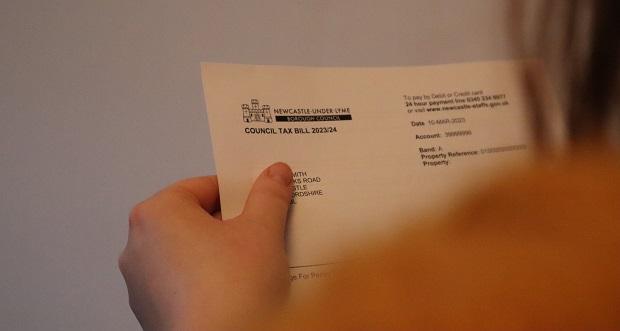Cost of living help for residents

Financial support and practical advice for people facing the cost of living crisis will continue in the coming year.
Newcastle-under-Lyme Borough Council is preparing to distribute around £212,000 in 2023/24 to eligible residents as part of the Council Tax Support Fund.
And at the same time the authority is preparing to award a £210,000 three-year contract offering residents debt and benefit advice services at locations in Kidsgrove and Newcastle.
Stephen Sweeney, Deputy Leader of Newcastle-under-Lyme Borough Council and Cabinet member for Finance, Town Centres and Growth, said:
We are all very aware that rising inflation and increasing fuel and energy prices have affected many households this winter and that the effects of that will continue to be felt.
We are committed to the swift delivery of the £25 council tax support to the approximately 4,300 residents eligible for it from April onwards and we will be looking at how best we can use the remainder to help the maximum number of people in the Borough.”
In the current financial year support schemes included the Energy Support payment, in which residents living in council tax property bands A-D received £150.
Those already eligible should automatically have their discount deducted from the Council Tax bill issued this month. Others who become eligible during the year will be dealt with as quickly as possible.
Those who live ‘off grid’ and are currently applying to the Government’s Energy Bills Support Scheme will also receive £400 from the Borough Council after applications have been processed in the summer.
At the same time the authority is preparing to tender a three-year contract to provide debt and benefit advice in the Borough.
Gill Heesom, Newcastle-under-Lyme Borough Council's Cabinet member for Community Safety and Wellbeing, said:
This isn’t a service that the Council is obliged to provide, but given the circumstances that many people face and the forthcoming transition of people’s benefits to Universal Credit, there remains a clear demand for plain, simple, practical help for those struggling to make ends meet one way or another.”
The current service emphasises early intervention to stop problems escalating and offers support ranging from self-help online, to phone conversations and face-to-face meetings.
Gill Heesom added:
We know that fuel poverty can lead to ill health, while money worries can put great pressure on family units, with children’s emotional and physical wellbeing affected.
Prevention is far better than cure and not only is making provision to support people as soon as possible make common sense, it can affect people’s life chances in the long run.”

